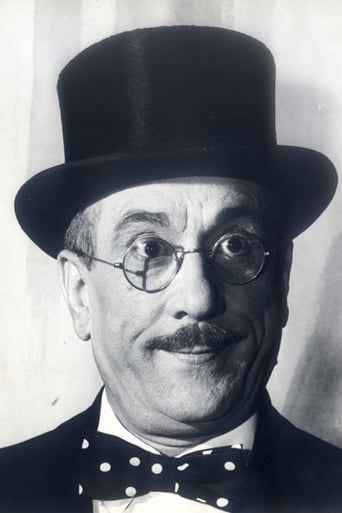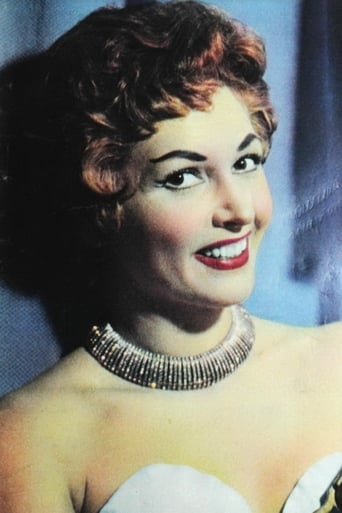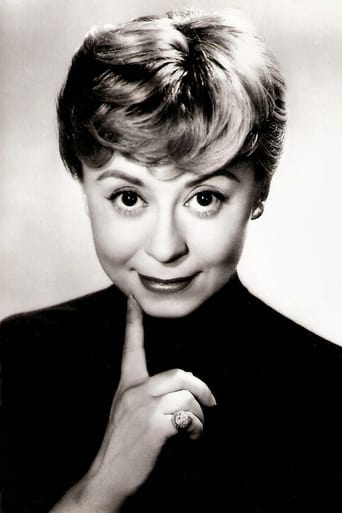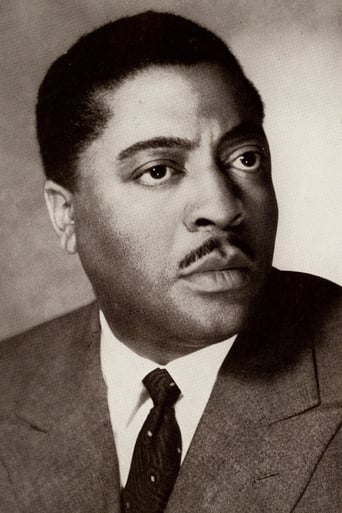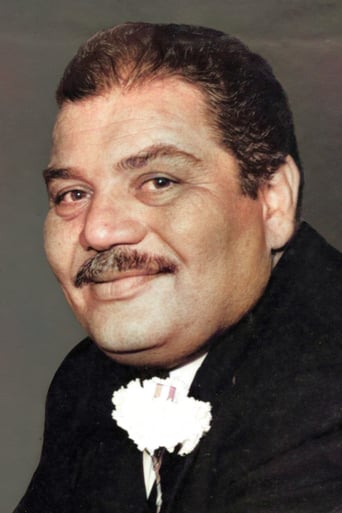Grimerlana
Plenty to Like, Plenty to Dislike
VeteranLight
I don't have all the words right now but this film is a work of art.
UnowPriceless
hyped garbage
Erica Derrick
By the time the dramatic fireworks start popping off, each one feels earned.
Cosmoeticadotcom
If you have ever wondered why Federico Fellini's film 8½ was called 8½, the reason is simple. It was the eighth full film he had directed, till that point, along with a ½ film credit, which was his debut effort, 1950's co-direction in the 97 minute long black and white film Variety Lights (Luci Del Varietà), along with Neo-Realist film directing veteran Alberto Lattuada. The film's story and screenplay, however, were both penned by Fellini, and the most manifest thing about the film is its similarity to the Hollywood film All About Eve, released the same year- albeit it is a bit grittier, more realistic and less melodramatically star-driven, and its influence on Fellini's own later La Strada, as well as presaging many Fellini trademarks and tics. It is not a great film, but a thoroughly enjoying light bit of entertainment. Before this film, Fellini had mostly worked as a screenplay writer and script doctor. His most well known contribution prior to this film was on Roberto Rossellini's Open City….despite their poverty and idiocy, selfishness and ill manners, the characters in Variety Lights are lovable and utterly human. They are not the grotesques and caricatures that would become Fellini's stock in trade in later years. They merely have to clutch to a goose, shrug an eyebrow, or yawn lazily on a divan, and the sense is that these are real people, not mere fictive characters. Even the camera lingers on them in soft hues, suggesting the empathy of the filmmakers'. The insider knowledge the film displays is classic Fellini territory, and despite being an ensemble film it is really the stellar acting of Peppino De Filippo that raises this film above mere schmaltz, which it could have become rather easily. No, it's not as deep nor poignant as Charlie Chaplin's Limelight, released two tears later- a film with similar themes and backgrounds, but it is a worthwhile film, and one that stands up to repeated viewings.
MartinHafer
This film was co-directed by Fellini and is one of his earliest works (his first directing, though he'd written some scripts for earlier films). Most of his films through the 1950s were very straight forward dramas and many of them were extremely touching and unforgettable. This movie fits in very nicely with these films such as THE WHITE SHEIK, I VITELLONI and LA STRADA. If you are looking for the symbolic Fellini like in 8 1/2 or the weird Fellini such as in SATYRICON or CASSANOVA, then this movie might just leave you flat because it is such a "normal" film. As for me, this is NOT a bad thing, as I have long preferred his earlier directorial work. It's not as complicated or confusing as his later films but also shows amazing style and grace--as well as a great ability to create touching characters.This simple film is about a 4th-rate traveling variety show. They are perpetually broke and most of this is due to the group's distinct lack of talent. Despite this, they have a certain pride in their work and some see themselves as artists--though their audiences thought otherwise. Into this rather bleak existence comes a young and seemingly naive young woman (Lily) who wants to be a star. Unlike the audience, Lily is captivated by the actors and longs to join them. The only one in the group who seems interested in having her join them, though, is the troop's director--and it's only because the lady is so young and shapely. Despite the lady's lack of experience, when she does make her debut it is a success--mostly because the men in the audience liked to see her in various stages of undress.Since the group is now a success, the director sees his new ingénue as his ticket to fame and he no longer pays attention to his long-time girlfriend (played by Fellini's wife, Giulietta Masina). He puts all his creative energy into marketing Lily and his efforts are pretty much wasted--as Lily is much better in marketing herself since men go mad when they see her on stage. Eventually, and not surprisingly, Lily outgrows the silly old director and he's left with no one, as his traveling troop left him because they were tired of being ignored. What happens next you'll have to see for yourself, but the film is an excellent and interesting character study--not so much of Lily, but of the foolish director.Well acted, interesting and fascinating--this is a lovely film worth your time.
rzajac
I just saw this for the first time, after sampling much of Fellini's later work over many years.The most surprising thing to me was the sense that Variety Lights (VL) foreshadows Fellini's later "indulgent" work. Here, he bathes the viewer with genuinely warm, almost disconnected bits of life in all its spendor. The fine editing makes it all work; I laughed and sighed out loud through much of this movie, and the first 10 minutes hooked me. A little later in his career, Fellini (with help from other fine story people) showcased straight-up storytelling in La Strada and Cabiria. Subsequent to that, he began exploring "story space" in alinear, character-focused ways, from La Dolce Vita and beyond.The point of all of this is to express my surprise that Fellini appears to have ended his career somewhat as he started it. VL is almost a "throwback" to the directions he took later in abandoning more traditional storytelling methods. Maybe it'd be better to put it this way: When he began diverging from a more conventional narrative style, he was actually taking a step *back* to the style we see in VL. A very good comparison is against his "Fred and Ginger," which explores story space in a studiedly chaotic way, then bowls you over by tying things together with a profoundly touching moment at the end. In "Fred and Ginger," Fellini gracefully brings together his old and new styles. In VL, he seems to bring these together before the new even happened!The tremendous abilities of the actors and actresses are delightful in VL. Something conspicuous in post 8-1/2 Fellini is the purposeful lack of traditional acting craft; Fellini talked about this repeatedly in interviews. In VL (as in La Strada and Cabiria), Fellini shows that he was perfectly capable of directing actors who are plying their skills.Because VL seems to cover the strengths of most of Fellini's career, it is a very fine example of the best he could do. Check it out.
jhclues
A young woman pursuing her dream of being on the stage, aligns herself with a traveling variety show band of performers in `Variety Lights,' directed by Federico Fellini (and assisted by Alberto Lattuada). Veteran comic actor Checco Dal Monte (Peppino De Filippo) and his troupe of performers are struggling to get by, living from hand to mouth and show to show, but it doesn't deter Liliana Antonelli (Carla Del Poggio), blinded perhaps by the stars in her eyes, from approaching Checco about joining his show. He turns her down-- they simply have no openings, and certainly no money-- but circumstances soon prevail on her behalf, and much to the chagrin of many of the other performers, she joins the troupe. The effect she will have on the show, and how it will influence her own life, remains to be seen at this point; but with Fellini at the helm, you know it's going to be an interesting ride. And it is. Fellini, a true visionary, is known for filling the screen with vivid images born of his own imagination, especially in his later films. But beyond the sometimes bizarre appearances, there is always an engaging story to be found at the heart of his films, and this one (his first) is no exception. And, though devoid of the surrealism he would use later on, in Checco's company there is something of the carnival motif present that Fellini would return to time and again during the course of his career, and of course, there's the story, presented with that unique Fellini touch and laced with his insight into the human condition, which at it's core is the real strength of the film. No matter what the subject matter, Fellini always had his finger on the emotional pulse of the material and had the innate ability to transfer what he felt to the screen. Very simply, he knew what worked and how to use it; within the images he presents, there can always be found a reflection of reality-- even amid the surreal-- and it's in his characters. Physically and emotionally, these are real people who run the entire gamut of human existence. Beyond his astounding visuals, it's his ability to cultivate that depth of his characters that makes Fellini special; the way they interact with, and relate to one another or the situations in which they find themselves. And by drawing out his actors, he always gives his audience someone with whom to identify on one level or another. As Checco, Filippo successfully taps into the humanity of the character, this aging performer with hopes and aspirations beyond his means or capabilities. He's a character with whom you can sympathize, but only to a point-- for you soon recognize his flaws and transgressions. But even then, you are still able to at least understand him. Most importantly, his performance is believable, and his Checco comes across as a very real person. Del Poggio gives a notable performance as well, as this young woman who makes the most of the opportunity with which she is presented. And as the story unfolds she develops her character extremely well; by the end of the film you know exactly who `Lily' is and what motivates her. In a memorable supporting role, it's the young Giulietta Masina, however, who steals the show as Melina Amour, Checco's girlfriend. She creates the one character in the film with whom you can truly empathize, and she does it with style. Masina has such a radiant, charismatic screen presence, that whenever she appears the eye is instinctively drawn to her. A gifted actress, she is exceptionally adept at expressing her emotions-- often by merely shifting her eyes-- and communicating with the audience. Few actors can say more or convey as much with their eyes or with a simple expression as Masina. And, sparse as it is, her performance here is alone worth the price of admission. The supporting cast includes Folco Lulli (Adelmo), John Kitzmiller (Johnny), Dante Maggio (Remo), Carlo Romano (Enzo) and Gina Mascetti (Valeria del Sole). Well crafted and delivered, `Variety Lights' is an engaging story, told in the same straightforward manner Fellini would later use in `La Strada' and `Nights of Cabiria.' The basic elements of the story may be familiar, but it's an entertaining film, and worth seeing, as it prophesies the triumphs of an artist who would soon be recognized as one of the world's master filmmakers: Fellini. I rate this one 7/10.
